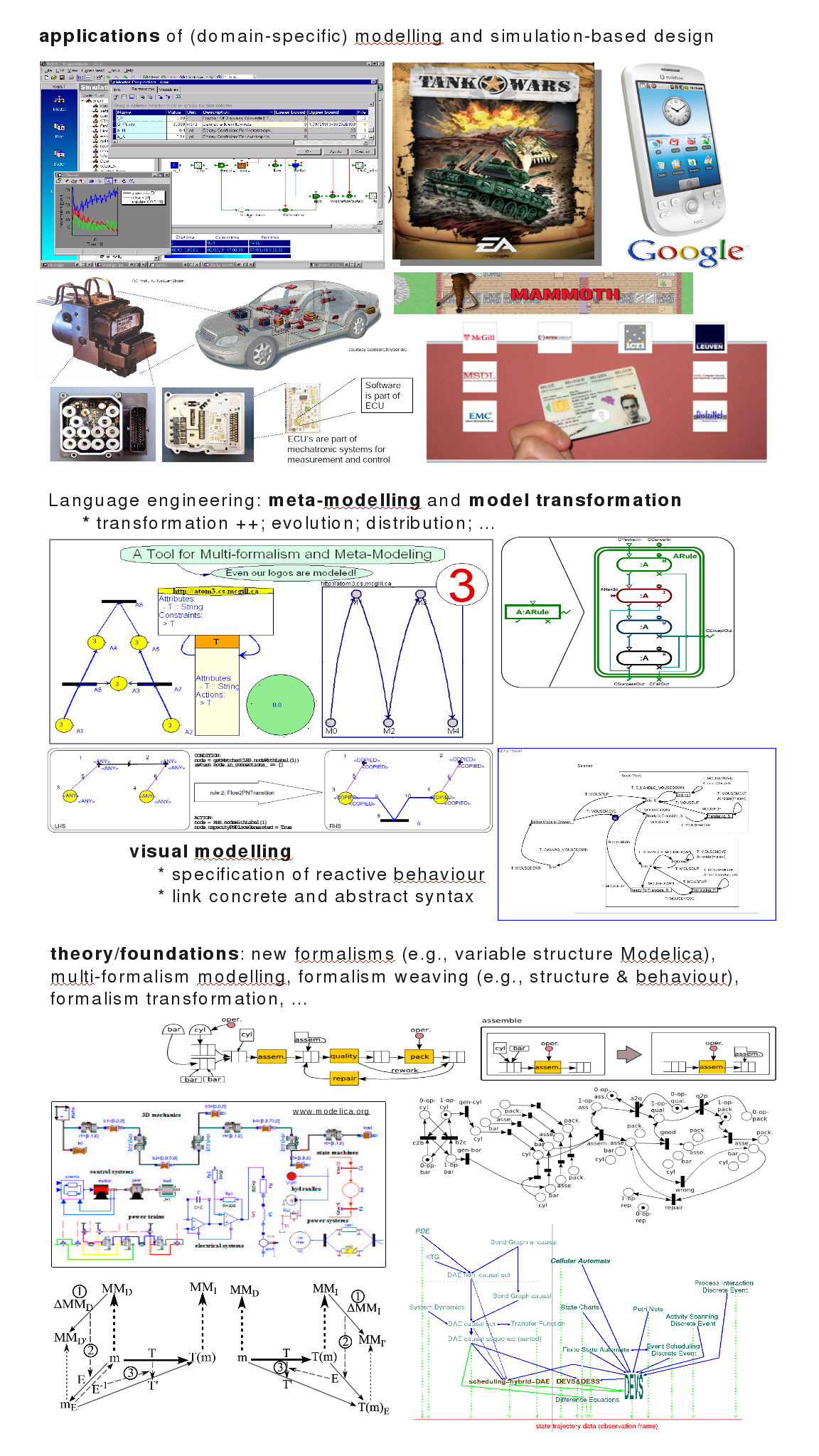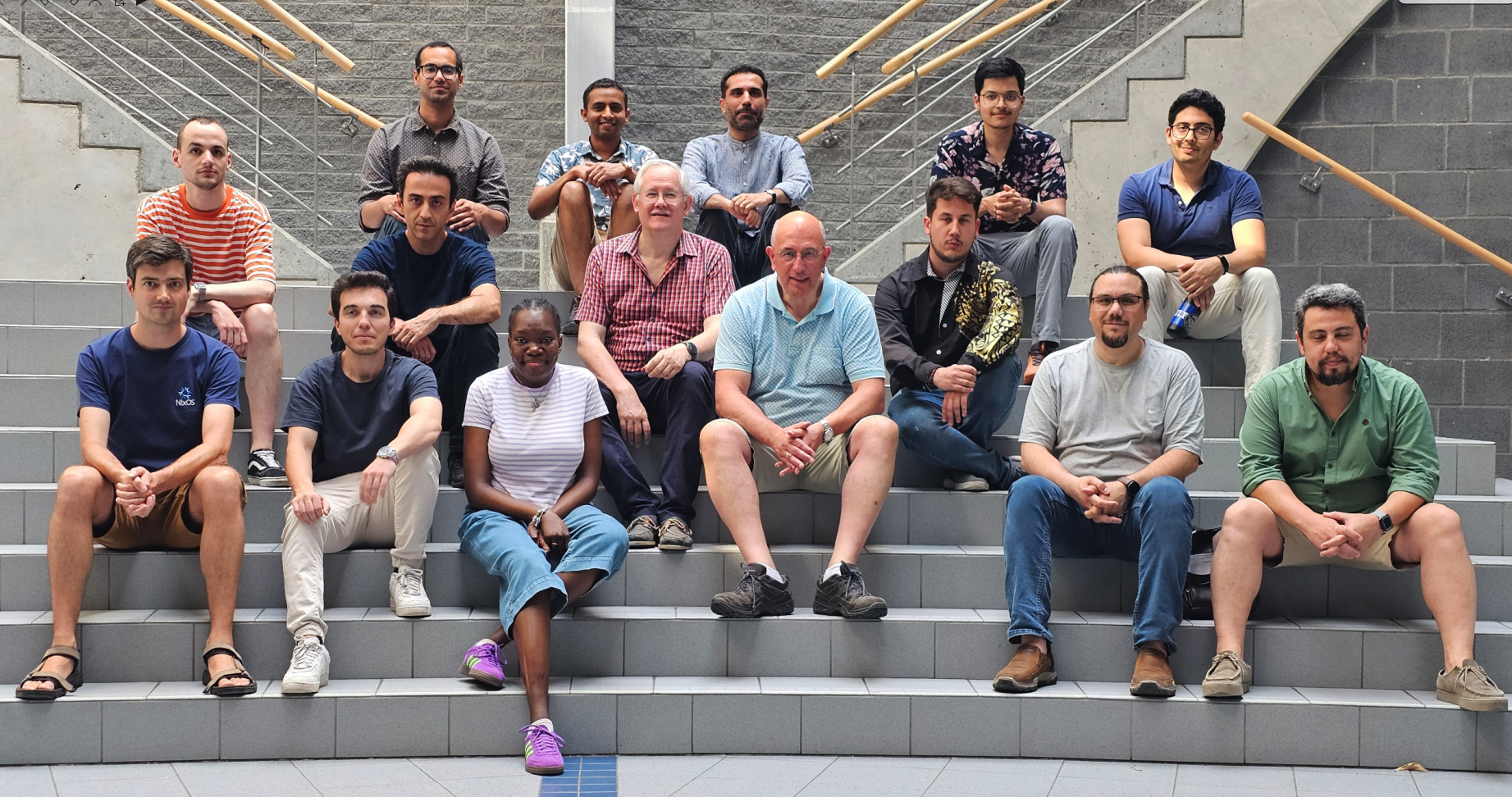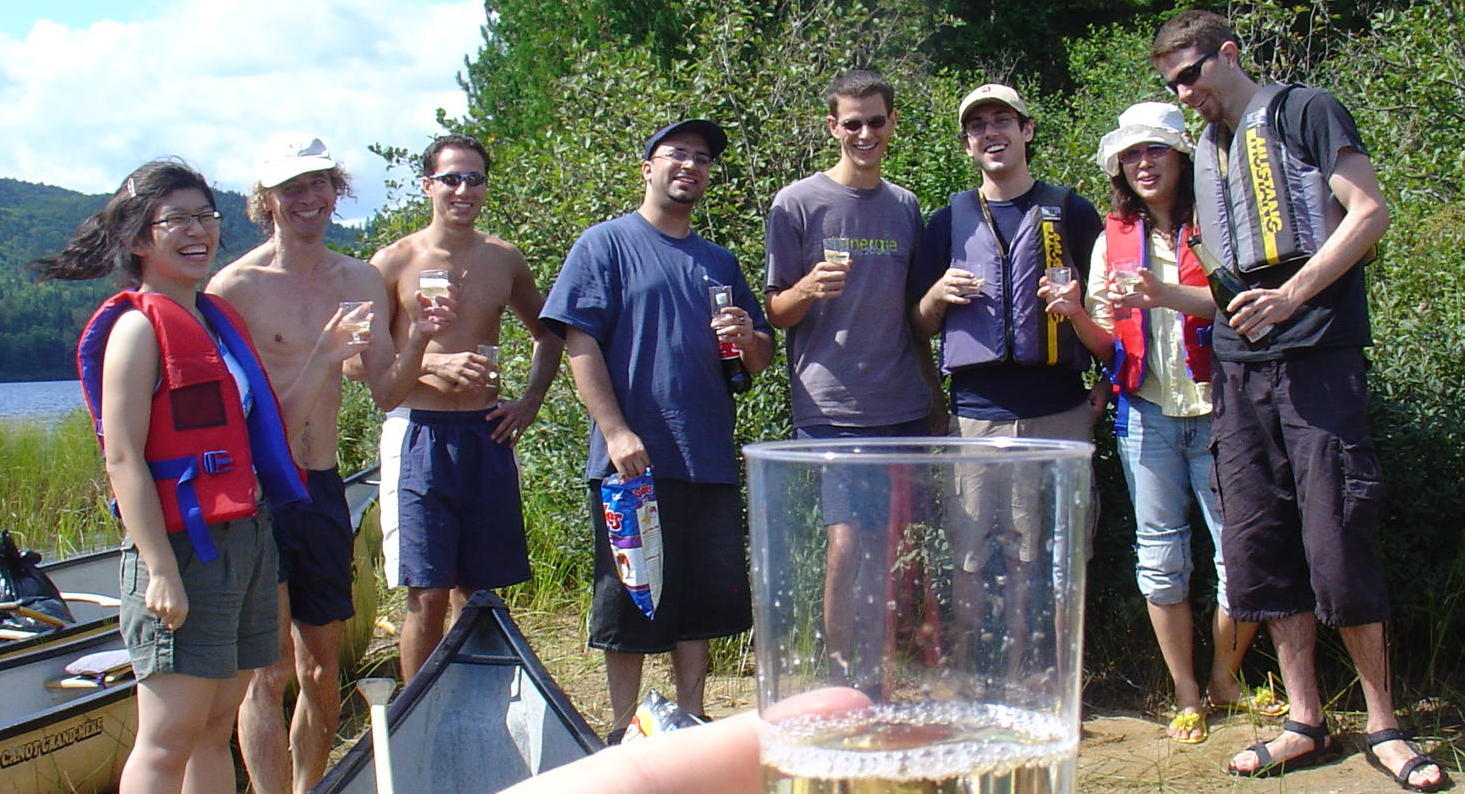|
The Modelling, Simulation and Design lab (MSDL) headed by Prof. Hans Vangheluwe is part of the School of Computer Science of McGill University in Montreal, Quebec, Canada and of the AnSyMo (Antwerp Systems and software Modelling) group in the department of Mathematics and Computer Science of the University of Antwerp, Antwerp, Belgium. The MSDL has projects, researchers and students in both locations. At McGill, the lab is located in room 202 of the McConnell Engineering building. At the UA, the lab is located in room G 3.17 of building G on the Middelheim campus. Our research is focused on Computer-aided Multi-paradigm Modelling and simulation (CaMpaM) with supporting model compilers and modelling languages, on domain-specific modelling, on software engineering, on rapid application development, and on reactive systems (and Graphical User Interfaces in particular). 
[pdf]
The basis for our CaMpaM work is the insight that we study complex dynamical (time-varying) systems and their sub-systems at different levels of abstraction. More formally, different users will employ different formalisms (often determined by their background or application domain) such as System Dynamics, (Partial) Differential Equations, Transfer Functions, Bond Graphs, Petri Nets, Finite State Automata, State Charts, DEVS, and Markov Chains to model (sub-)system behaviour. The challenge is to relate (the semantics of and solvers for) those formalisms and to investigate how they can be meaningfully combined. We believe meta-modelling of both syntax and semantics of modelling formalisms is the key to supporting CaMPaM. We design object-oriented modelling languages, and implement their compilers. Modelling languages are a basis for knowledge representation, exchange (i.e., between intelligent agents), re-use, documentation, verification, as well as simulation. Of particular interest is the modelling and efficient simulation of hybrid models which bring together continuous and discrete event abstractions. Transformation of models in different formalisms is at the core of our research. In particular, "quantization" to represent continuous models into discrete event (DEVS) form using graph algorithms and computer algebra, is investigated. Engineered systems, either in software or in hardware (and increasingly, combined), are of particular interest. It is believed that multi-formalism modelling can be a rigourous basis for correct, principled, and rapid design of such systems. Thanks to the standardisation of the Unified Modelling Language (UML), the graphical specification of structure and behaviour of possibly embedded, reactive software, using a limited number of formalisms, is finding widespread acceptance. The UML is just a starting point however. On the one hand, many other formalisms (such as DEVS, Petri Nets and Bond Graphs) are meaningful for specifying systems' structure and behaviour. On the other hand, such a specification should be the basis for automated formal verification, simulation, code generation, and documentation generation.
Current research spans the theoretical foundations as well as
the implementation of software tools
(Integrated Development Environments) for the construction, exchange,
re-use, and simulation of multi-formalism models.
Currently, we are developing AToM3,
A Tool for Multi-formalism and Meta-modelling.
Our prototype tools are used in a variety of disciplines
including waste water treatment plant design, physically
based training simulation and computer games, software design
(using UML-like models to specify and generate software),
and software process modelling. Details can be found by following the projects link.  Some of the 2023 MSDL members in the Collaborative Design Facility (CDF).  Some of the Antwerp Systems and software Modelling (AnSyMo) members in 2025.  Some of the MSDL members on the 2008 Summer Canoe trip to La Mauricie National Park. |
| Maintained by Hans Vangheluwe. | Last Modified: 2008/09/16 02:14:04. |